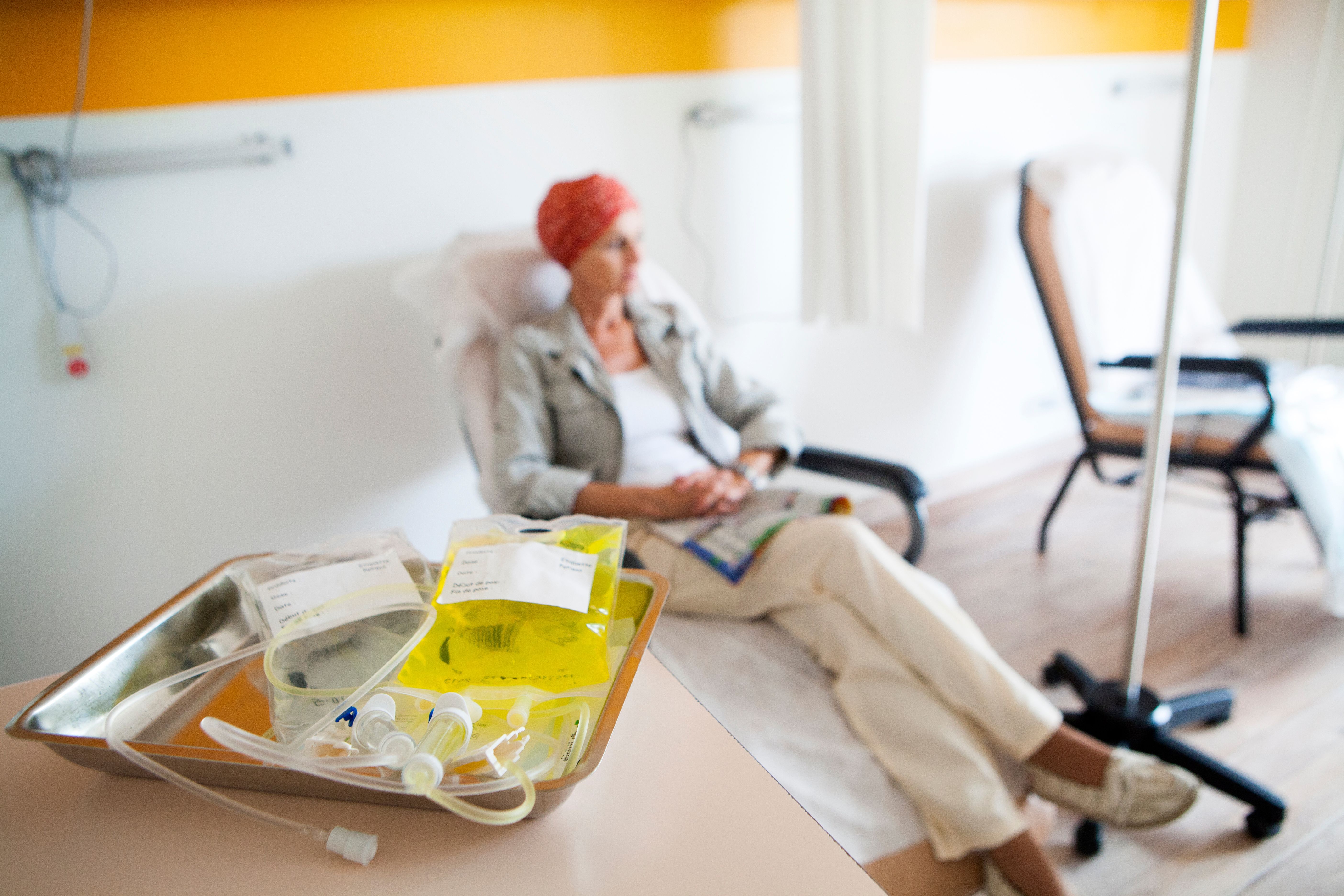Cancer centers across the United States continue to grapple with chemotherapy drug shortages, impacting patient care and treatment options. A recent survey conducted by the National Comprehensive Cancer Network (NCCN) reveals the persistent challenges faced by healthcare providers in accessing essential medications.
Woman receiving chemotherapy treatment
Image credit: RFBSIP | stock.adobe.com
The NCCN’s September 2023 follow-up survey, which included responses from 29 of its 33 member institutions, found that 72% of cancer centers reported ongoing shortages of carboplatin and 59% reported cisplatin shortages. Alarmingly, a staggering 86% of participating cancer centers indicated a shortage of at least one type of anti-cancer drug. These findings underscore the continued strain on healthcare systems and the potential disruption to patient treatment plans.
“Everyone with cancer deserves access to the most effective treatment based on the latest evidence and expert guidelines,” emphasized Robert Carlson, MD, chief executive officer of NCCN. “While drug shortages are not a new phenomenon, the current widespread impact is particularly concerning. The persistence of these shortages despite significant attention and efforts over recent months demands enduring solutions to protect cancer patients and ensure equitable access to care.”
The survey results highlight a worrying trend compared to a similar survey conducted in June 2023. The earlier survey indicated even higher shortage rates: 93% for carboplatin and 70% for cisplatin. Other crucial medications also experienced significant supply constraints, including methotrexate (66%), 5-flourouracil (55%), fludarabine (45%), and hydrocortisone (41%). These shortages pose significant challenges for oncologists and other healthcare professionals in developing and implementing optimal treatment strategies.
“These ongoing drug shortages are the consequence of long-standing systemic issues within the pharmaceutical supply chain,” explained Alyssa Schatz, MSW, senior director of policy and advocacy for NCCN. “While comprehensive solutions require time and effort, the prolonged nature of this crisis is unacceptable for anyone affected by cancer. These survey results serve as a stark reminder of the urgency required to address this critical situation.”
Despite the limited supply, most participating institutions reported that they were able to continue treating all patients requiring carboplatin or cisplatin by implementing stringent waste management strategies. However, the survey acknowledges that the responses from NCCN member institutions may not fully represent the challenges faced by smaller community cancer practices and centers, particularly those serving rural and marginalized populations, who may experience even greater difficulties accessing these essential medications.
“While significant progress has been made since June, we remain committed to finding lasting solutions to prevent future anti-cancer drug shortages and ensure that all patients have access to the life-saving treatments they need,” stated Carlson.
Reference
National Comprehensive Cancer Network. U.S. Cancer Centers Continue to See Chemotherapy Shortages, According to Update from NCCN. News release. October 5, 2023. Accessed October 5, 2023.

